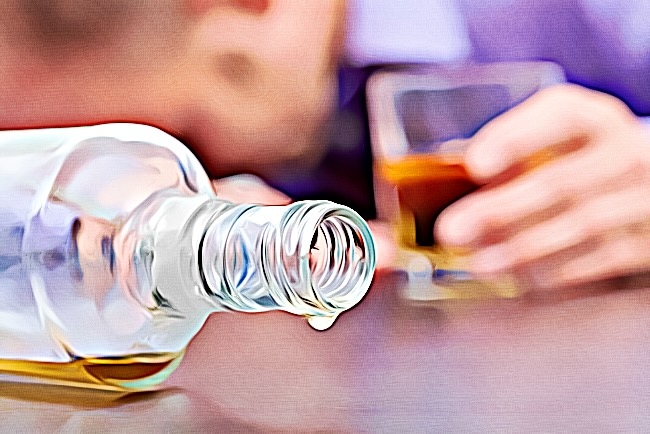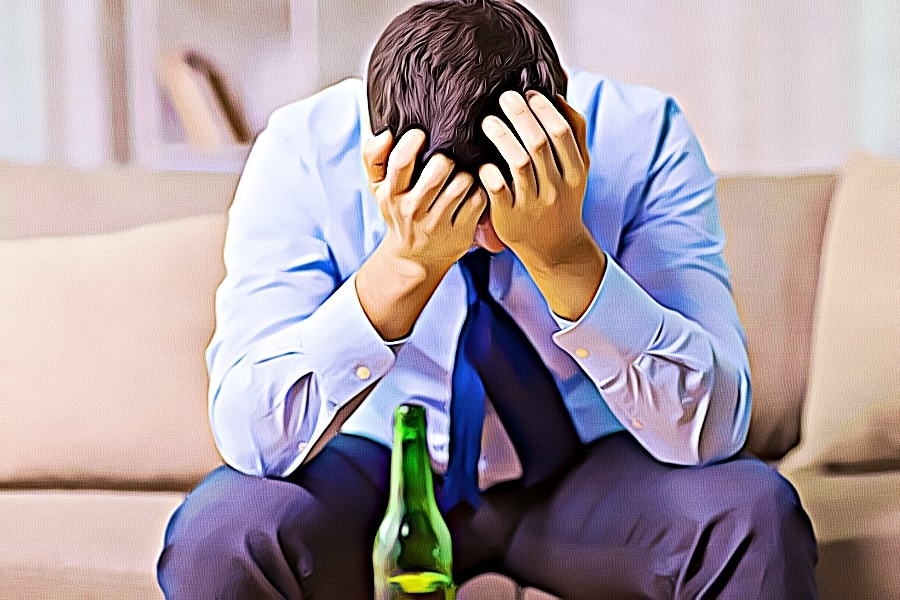For most people, drinking alcohol is a leisurely activity. It’s reserved only for special occasions with friends and family. However, some people tend to overestimate their tolerance for alcohol. Over time, these people can develop a dependence on the beverage, leading to alcoholism. Although it’s not as troublesome as other addictive substances, alcohol can still bring you down a path of self-destruction.
Alcohol addiction can start small and unnoticeable, from taking more than your regular amount of liquor to get high to have a drink outside night hours. Raising your alcohol tolerance by regular drinking has its benefits, but it can put you at risk of seeking something stronger. Once it takes you over the edge, you can end up blacking out or acting through impulse. This can lead to disastrous moments in your life, ranging from occasionally embarrassing to dangerously fatal.
How dangerous is alcohol addiction?
People under the influence of alcohol tend to act more liberal and reckless. For some, it’s an opportunity to feel euphoric and cheerful. However, continuous use of alcohol can make you appear more drunk than sober for most of the day. This doesn’t just affect yourself but also your social and professional relationships. Like any addictive substance, you can develop a dependence on it and look for ways to get your fix.
Alcoholism can also be a gateway condition to dependence on more addictive substances like heroin and other narcotics. Although mixing alcohol consumption with these compounds can increase alcohol’s euphoric effects, it also multiplies the severity and risk of suffering side effects and withdrawal symptoms.
Most people notice that they have an alcohol addiction after going through a liquor-driven episode. It can be an accident or altercation that causes them to act irrationally or on impulse. Thankfully, you don’t have to wait for this to happen. This is why realization will be the key to your recovery.
How do I detox from alcohol?
Once you’re ready to lead to a sober life, you should commit to alcohol detoxification. It’s a rigorous process that requires treatment from medical professionals for inpatient and outpatient programs. For some recovering alcoholics, the urge to drink has become too strong for them to control themselves. This is why it’s necessary to check them in a rehab facility.
What’s the danger of performing home-based alcohol detox?
There are numerous risks when undergoing home-based alcohol detox. However, people have an assumption that alcoholism isn’t as grave a condition as other forms of substance abuse disorder. The comfort of staying at home and powering through your body’s natural process of expelling liquor is more complicated than undergoing one night’s worth of a hangover. If you’ve been dependent on alcohol for weeks, months, or years on end, you will experience severe withdrawal symptoms. Although detoxing from other drugs has its own complications, detoxing from alcoholism is also not a risk-free procedure.
When you suddenly stop taking alcohol, your body reacts with withdrawal symptoms. Like any addictive substance, its presence on your body has led to different chemical changes that will lead to adverse conditions. These withdrawal symptoms can last from weeks or months, making you uncomfortable throughout your recovery without the right medication. For this reason, it’s vital to undergo gradual withdrawal under professional observation.
What alcohol withdrawal symptoms should I expect?
Sudden alcohol cessation can lead to a series of withdrawal symptoms that range from minor to severe. Since alcohol depresses the central nervous system, your body will depend on it for feelings of relaxation and euphoria. Without alcohol, your brain receptors will become overactive causing several neurological complications such as anxiety, irritability, and depression.
If you’ve been dependent on alcohol for an extended period, you can develop symptoms of Delirium Tremens (DTs) ; it’s a form of confusion that’s specific to alcohol withdrawal. It manifests in high body temperature, seizures, paranoia, and even hallucinations.

Reducing your alcohol consumption is a viable method of reducing the risk of suffering from severe withdrawal symptoms. However, it’s a commitment you need to adjust committedly. Some people seek a medical expert or a sponsor to ensure that they’re following their revised alcohol intake.
What does an alcohol withdrawal timeline look like?
Like any harmful substance, your body will process and expel it naturally over time. This applies not just to some poisons but also to alcohol and narcotics. When undergoing alcohol withdrawal, your body will respond accordingly with conditions manifesting from 6 to 72 hours. Detailed below is the alcohol withdrawal timeline you should expect:
6 hours from last alcohol consumption: Minor withdrawal symptoms will start to manifest, from tremors, high heart rates, and some neurological ailments. People with a long history of drinking should expect to experience a seizure as early as 6 hours from their last alcohol consumption.
12 to 24 hours from last alcohol consumption: At this point, you will develop hallucinations that are auditory, visual, or both. Although it can be a frightening symptom, it’s not yet a serious condition requiring urgent medical attention.
24 to 48 hours from last alcohol consumption: The minor withdrawal symptoms listed above will continue, which can also develop into headaches, tremors, or an upset stomach. If a person isn’t a heavy drinker, their symptoms should peak at around 24 hours and start becoming less aggressive after 5 days at most.
42 to 72 hours from last alcohol consumption: At this stage, you will expect severe DTs symptoms. It’s important to closely monitor your vitals at this leg of your recovery since your heart rate and body temperatures can lead to other medical complications.
72 hours from last alcohol consumption: After three days from your last bottle of alcohol, your symptoms will start peaking at their worst. In rare situations, some patients can have moderate withdrawal symptoms that can remain for over a month.
Keep in mind that this timeline is a general estimate of what a person suffering from alcoholism will look like. Other factors, like their age, weight, liver condition, pre-existing conditions, and drinking frequency, can shorten or lengthen some period’s effects.
How long will it take me to detox from alcohol?
The earliest symptoms start six hours after your last drink, which is why it’s important to track your alcohol intake. Your body expels the last withdrawal symptom for up to four or six days afterward. Most people can recover from alcohol withdrawal within a week. However, people with severe dependency can take several months to be free from minor and major symptoms.
Attempting to detox at home is generally an ill-advised procedure, especially since it takes much longer and puts the patient at risk from medical complications. In a medical facility, doctors and nurses have the right equipment to monitor your vital signs and respond to urgent conditions that can develop due to withdrawal symptoms.
Conclusion
It’s not uncommon for some recovering alcoholics to shy away from professional rehab centers. The prejudice that most people in rehab centers with substance abusers with a history of purchasing illegal substances prevents them from seeking the help they need. This is why some recovering alcoholics prefer to perform their toxic themselves at their own homes.
However, this procedure is never a viable substitute for professional medical attention. Checking yourself to a drug rehab center will give you a better chance of staying sober and developing a healthy lifestyle that will maintain your sobriety.
Sources:
https://www.health.harvard.edu/a_to_z/alcohol-withdrawal-a-to-z

